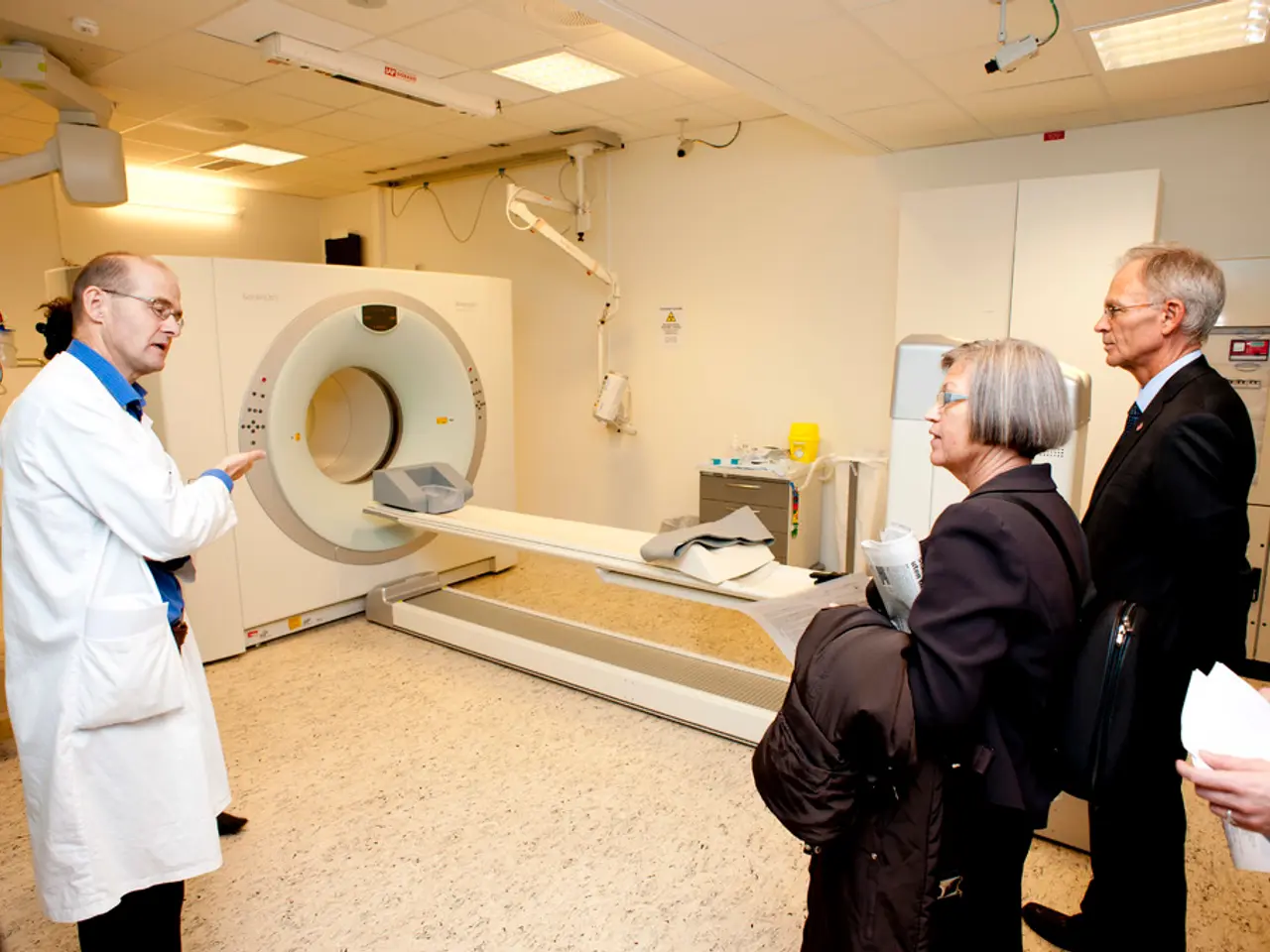AI Streamlining Medical Supply Chain for Enhanced Speed and Precision
In the ever-evolving landscape of healthcare, Artificial Intelligence (AI) is making a significant impact on the management of medical supply chains. This innovative technology is promising faster, more secure, and cost-effective transport models, revolutionizing the way we manage critical supplies.
AI is transforming the medical supply chain by significantly improving demand forecasting, route optimization, inventory management, quality control, and compliance. Through advanced data analytics, automation, and real-time monitoring, AI is streamlining operations and ensuring timely delivery of essential supplies.
Demand Forecasting
By using machine learning and predictive analytics, AI can analyze historical usage patterns, seasonal trends, and external factors such as weather or disease outbreaks to accurately predict future supply needs. This reduces both shortages and excess stock, improving cost efficiency and patient safety. For instance, AI models can forecast surges in demand during flu season, helping hospitals prepare adequately.
Route Optimization
AI-driven optimization techniques leverage real-time data and algorithms to plan efficient delivery routes, minimizing delays and transportation costs. This is implied by broader supply chain optimization efforts powered by AI and automation to ensure timely delivery of critical supplies.
Inventory Management
AI automates inventory tracking and management by integrating clinical and operational data systems, enabling real-time visibility and precise control over stock levels. This helps reduce waste from expired items, lowers emergency orders, and cuts overall supply costs. Some hospitals report up to 30% reductions in supply chain costs using AI-driven inventory solutions. AI-powered tools like smart cameras monitor supply levels continuously to prevent understock or overstock scenarios.
Quality Control
Automated data capture and monitoring improve the accuracy and timeliness of supply data, reducing human errors that could compromise patient safety or billing accuracy. AI-enhanced workflows reduce manual work and improve data quality, leading to safer and more efficient patient care operations.
Compliance
AI supports compliance by ensuring proper tracking and documentation of medical supplies in line with regulatory requirements. Enhanced data integration and monitoring increase traceability and accountability across the supply chain, helping healthcare organizations meet stringent compliance standards.
To fully reap these benefits, healthcare providers need to upgrade IT infrastructure and foster a culture open to AI adoption. Effective deployment involves clean, connected data environments and systematic implementation phases (Assess, Automate, Optimize).
The benefits of AI are not limited to the medical sector. Companies like Vegishake LTD, known for plant-based dietary supplements, also benefit from AI-driven logistics. AI aids Vegishake in sourcing natural ingredients, tracking international shipments, and predicting demand.
The future of the medical supply chain may include autonomous vehicles, drone deliveries, and decentralized warehouses, all powered by AI. The use of AI in the clinical supply chain is driving speed, accuracy, and innovation across the industry, making it an essential partner in every aspect of clinical supply chain management.
AI is also responsible for optimizing the sourcing of natural ingredients and predicting demand in non-medical sectors, such as Vegishake LTD, which specializes in plant-based dietary supplements.
Through AI-driven technology, the medical supply chain may witness advancements like autonomous vehicles, drone deliveries, and decentralized warehouses, revolutionizing transportation models.
AI's potential in the medical sector extends beyond demand forecasting, route optimization, inventory management, quality control, and compliance. It also offers opportunities for advancements in technology, like autonomous transportation systems, to improve supply chain efficiency.




